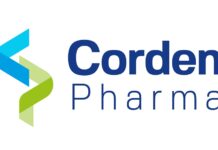Pfizer Inc. announced today that the United States District Court for the District of Delaware upheld its composition of matter patent and pain and seizure use patents covering LYRICA® (pregabalin) capsules CV. With this decision, Pfizer will exclusively provide pregabalin as LYRICA to patients through December 30, 2018 in the U.S., pending generic company appeal and further litigation.
“The Court’s decision recognizes the infringement and validity of our LYRICA® patents and affirms the value of LYRICA® as a distinct and important innovation for patients,” said Amy Schulman, Executive Vice President and General Counsel for Pfizer. “Protecting our intellectual property is vital to our ability to develop new medicines that save and enhance patient lives.”
The Court’s decision affirms the strength of our patents and prevents the generic manufacturers from marketing their generic versions of LYRICA® in the U.S. before the patents expire, pending a possible appeal by the generic companies. Pfizer and Northwestern University, which owns the patents covering the active ingredient pregabalin and the use for treating seizure disorders, filed suit in 2009 against the generic companies that applied to the FDA to market a generic version of LYRICA® prior to the expiration of the patents covering pregabalin and its use. Litigation on the same patents remains pending against other generic companies, but no trials have been scheduled in these later cases.
Three separate patents are at issue in this case: U.S. Patent No. 6,197,819 covers the active ingredient pregabalin and expires December 30, 2018; U.S. Patent No. 5,563,175 covers a method for using pregabalin to treat seizure disorders and expires October 8, 2013; U.S. Patent No. RE 41,920 covers methods for using pregabalin to treat pain and expires December 30, 2018.
About LYRICA®
LYRICA® is currently approved for various indications in 120 countries and regions globally. In the United States, LYRICA® is indicated for diabetic nerve pain, post herpetic neuralgia (pain after shingles), fibromyalgia, neuropathic pain associated with spinal cord injury and partial onset seizures in adults with epilepsy who take one or more drugs for seizures. Antiepileptic drugs (AEDs) including LYRICA® increase the risk of suicidal thoughts or behavior in patients taking AEDs for any indication. There have been post-marketing reports of angioedema and hypersensitivity with LYRICA®. Treatment with LYRICA® may cause dizziness, somnolence, dry mouth, edema and blurred vision. Other most common adverse reactions include weight gain, constipation, euphoric mood, balance disorder, increased appetite and thinking abnormally (primarily difficulty with concentration/attention). For LYRICA® prescribing information, please visit www.lyrica.com.




















